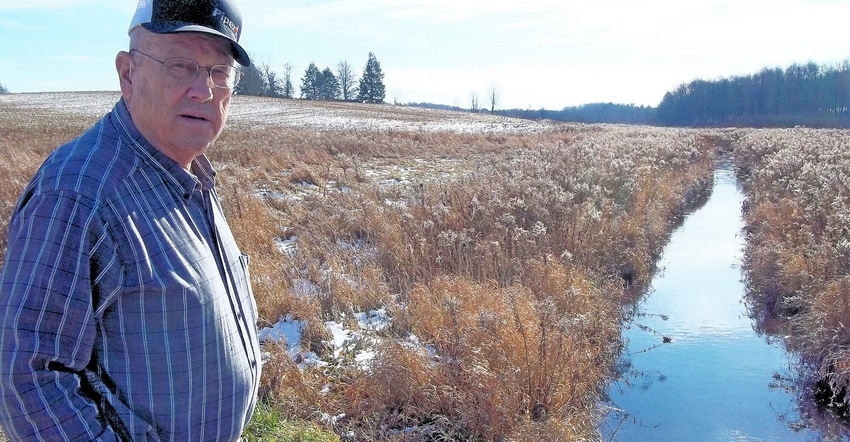
When you or I misrepresent facts, shame on us! We’re likely be held accountable. But what if agents of the federal government purposefully do so, forcing loss of farmland without compensation plus financial damages to farmers?
That’s exactly the case, contends Lawrence Kogan, senior partner in New York City-based Kogan Law Group. The San Joaquin Agricultural Law Review has accepted his law review article to be published this fall. Kogan says it’s aptly named: “Ducking the truth about the great 'commenced conversion conspiracy against America's farmers.” Some of the details are in apre-publication abstract.
Farm Progress “broke” the Uncle Sam vs. Brace Farms saga last September after Robert Brace, a farmer from Erie, Pa., filed lawsuits for $8 million in administrative claims against EPA, the Army Corps of Engineers, and the U.S. Fish and Wildlife Service under the Federal Tort Claims Act. The Kogan Group and other attorneys are handling the suit. The suit came about after EPA reopened the 1990 case in January 2017 to enforce an eight-page EPA-drafted consent decree Brace had executed in 1996. The agency also initiated a second action alleging new Clean Water Act 404 permit violations on another Brace farm tract.
Of lies and broken promises
In the 17-page law review, Kogan documents how a choreographed and coordinated campaign by federal agencies and environmental groups reversed USDA-authorized “commenced conversions” of wetlands to farmlands. Then, the farms, primarily in Pennsylvania and the Dakotas, were precluded from cost-sharing benefits they were entitled to under the Food Security Act of 1985.
The actions, he contends, amounted “regulatory ‘takings’ of farmers' private property for a public preservation/restoration of wetlands as ‘waters of the U.S.’ without just compensation.” This was a violation of the Constitution’s Fifth Amendment, he adds.
Why now
Kogan hopes the law review article will inspire current fair-minded federal agency and congressional leaders to craft necessary statutory and regulatory changes in the Clean Water Act — changes that return these farmers to their prior status. The Trump Administration hails how it has relieved America’s farmers of prior regulatory burdens and “ended the regulatory assault on [their] way of life,” Kogan says.
“Nevertheless, merely delaying implementation of the WOTUS rule by two years — not rescinding it — doesn’t go nearly far enough to guarantee this relief,” he argues. WOTUS extends EPA and the Corps’ already expansive CWA Section 404 wetlands jurisdiction over private farmlands.
Kogan believes President Donald Trump’s more informed advisers recognize they’re facing a deeply entrenched regulatory and law enforcement bureaucracy linked to the “deep state.” Meanwhile, Brace’s lawsuit remains in the U.S. District Court of Western Pennsylvania.
Catch up on how the United States vs. Robert Brace and Robert Brace Farms case developed:
Reopened wetlands case allows farmer to file $8 million claim against EPA
About the Author(s)
You May Also Like




